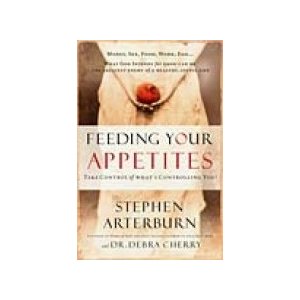In hopes of targeting topics to fit my reader’s needs, I recently took a poll of the hurts women struggle with. My poll listed: depression, anxiety, drug and alcohol abuse, sexual addiction, loneliness, self-hatred, and inferiority. The survey results were interesting, but not surprising.
Loneliness overshadowed all the other struggles listed.
Using the UCLA Loneliness Scale, AARP surveyed 3012 people over the age of 45 and found 35 percent are chronically lonely compared to 20 percent in a similar survey ten years earlier.
According to the 2010 Census, 25 percent of American households are maintained by a single person, a dramatic increase from 7 percent in 1940.
Over half of all Americans report having no close confidant or friends outside their immediate family; 25 percent of American have no meaningful social support at all, not a single person they can confide in!
All this means serious trouble for our health. Lonely people tend to have higher stress levels, exercise less, have more substance abuse, weaker immune systems, and the list goes on.
What is Loneliness?
Loneliness is a state of sadness resulting from feeling separated from others.
Chronic loneliness is continually feeling disconnected from others; often leads to personal isolation, bitterness and destructive behavior.
Loneliness today seems to come with the job. Not only are more children growing up with single parents, but where there are two parents, often both parents are working with an average commute of 46 minutes. By the time everyone gets home, there’s no time to visit with the neighbor while the kids play outside. We wear busy as a badge while the value of community connection all but disappears.
Alone vs. Lonely
Being alone refers to the physical state of being separated from others.
Being lonely refers to the emotional feeling of isolation or rejection.
Being alone can be a positive time of creativity or meditation with God.
Being lonely is always negative with feelings of hopelessness and worthlessness.
What about all my social-media friends and followers? Studies show rather than building community, social-networking sites give a false sense of connection that increases loneliness in people who already feel alone. A lonely woman may get on Facebook and see all the cool things her friends are doing with their exciting vacations, romantic dinners and happy families, she then begins to feel discontent with her own life.
Causes for Loneliness
Situational Loneliness: divorce, death of a loved one, empty nest, loss of job or home, physical disability, major move, illness, aging, abuse, new job, estrangement of family, etc…
Spiritual Loneliness: bad things happen and you feel God has abandoned you.
Social stigmas surround Loneliness. It’s seems acceptable to be on medication for depression, but being lonely often means unwanted, unlovable, unattractive, unintelligent. Loneliness is compounded not only with feeling alone but being alone in that feeling. It seems no one understands.
Some helpful solutions…
- Ask God for guidance and He will help you!
- Evaluate your loneliness. Take the UCLA Loneliness Test.
- Take charge of your feelings; remove negative thoughts and self-talk.
- Volunteer in your community.
- Join and get plugged into a local Bible believing church.
- Reduce work commute to free up time for friends, family and activities.
- Don’t substitute electronic communication for face time.
- Take an adult education class, start scrap-booking, knitting or quilting.
- Be determined not to isolate. Nurture personal relationships.
- Meet your neighbors. Start a ladies lunch or dinner once a month.
- Get the resources listed below.
- Read and memorize Scripture.
- Listen to praise and worship music.
Personally, loneliness is high on my list of struggles. It’s gotten better as I’ve grown in the Lord but it still shows up when I least expect it. I’m not a doctor or a counselor and don’t pretend to have all the answers. The more I researched loneliness the more I discovered what a huge problem it is in our world today. I spent several weeks studying and found volumes of material on the subject. There was no way I could possibly cover all the areas needed so I’ve added a few resources below.
If you suffer with chronic loneliness and have no one to talk to, please feel free to contact me here.
The three best resources I found to help with loneliness:
Worship music helps me most when I’m lonely. Here are some of my favorites. Rest in the Father’s Hands and receive His love for you…
Jesus Culture – All I Need is You http://youtu.be/MvL6evyRFgY
Misty Edwards – My Soul Longs for You http://youtu.be/mWC3J4Wz0wo
Michael W. Smith – More Love, More Power http://youtu.be/MhnmLNfyqY4
Photo Courtesy 123RF Stock Photo









